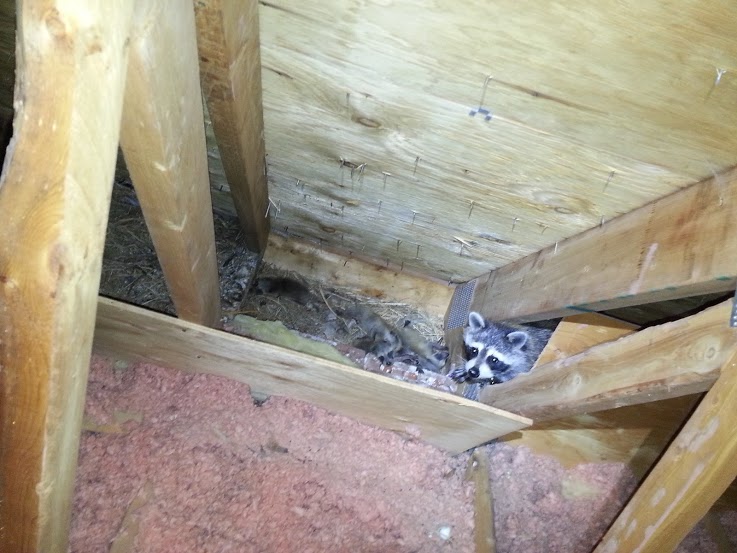What Will a Raccoon Do to Your Home?
Raccoons can be extremely destructive. They have slowly adapted to urban environments, with many of the rural areas of yesterday being taken over by developers and homeowners. While some may retreat to a nearby forest, many just find homes to create nests in. At Skedaddle Humane Wildlife Control, we’ve seen some serious issues caused by raccoons, such as:- Blocking the chimney
- Attacking pets
- Bringing rabies or other illness to the property
- Attacking chickens and small livestock
- Digging up gardens
- Pulling out trash and spreading it around the property
- Compacting or ripping apart the insulation
- Leaving feces and urine to soak into your insulation and other areas around the home
What Repellents Can You Use?
Unfortunately, raccoons are just like mice. They’ll temporarily be deterred by a repellent, but it’s not a long-term solution. Raccoons are not fond of strong-smelling things such as hot peppers, ammonia or onions, so those could work as repellents, but it’s not going to last long. A better solution is prevention.How Can You Prevent a Raccoon Invasion?
If a raccoon wants to get into your home, it’s probably going to find a way, but you don’t want to give it easy access. If you’re looking for a way to prevent a raccoon invasion, you may have to complete a few repairs and make a few changes.- Inspect the roof — Your roof may contain some weak areas where raccoons can create an entrance to your attic. As you inspect the roof, look for damaged soffit, loose vents or missing shingles. Raccoons are strong, so even a little tear in a shingle could be just the ticket for that little guy to create a big hole.
- Keep the garbage secure — Your outdoor garbage can should always be secure. That trash can probably have food in it every week. Whether it’s corn cobs or meat, a raccoon is going to quickly notice it has a constant supply of food. Your garbage cans should be kept in an inaccessible area if possible, and the lid should always be shut. If you’ve got a serious concern, you could place something heavy on top of the lid for extra prevention.
- Clear your lawn — If you have fruit trees, keep the fallen fruit picked up off the lawn. If you have bird feeders throughout your yard, be sure they’re hung properly without raccoon access, and if any seeds fall to the ground, get them cleaned up.
- Check your garage — Often times, the garage is an easy access point for raccoons. There may be a pet door, a hole in the roof or a weak spot in the door. Garage repairs don’t often get the same urgent attention as home repairs, but in the hope of deterring raccoons, they should. You should also secure your pet door at night.



